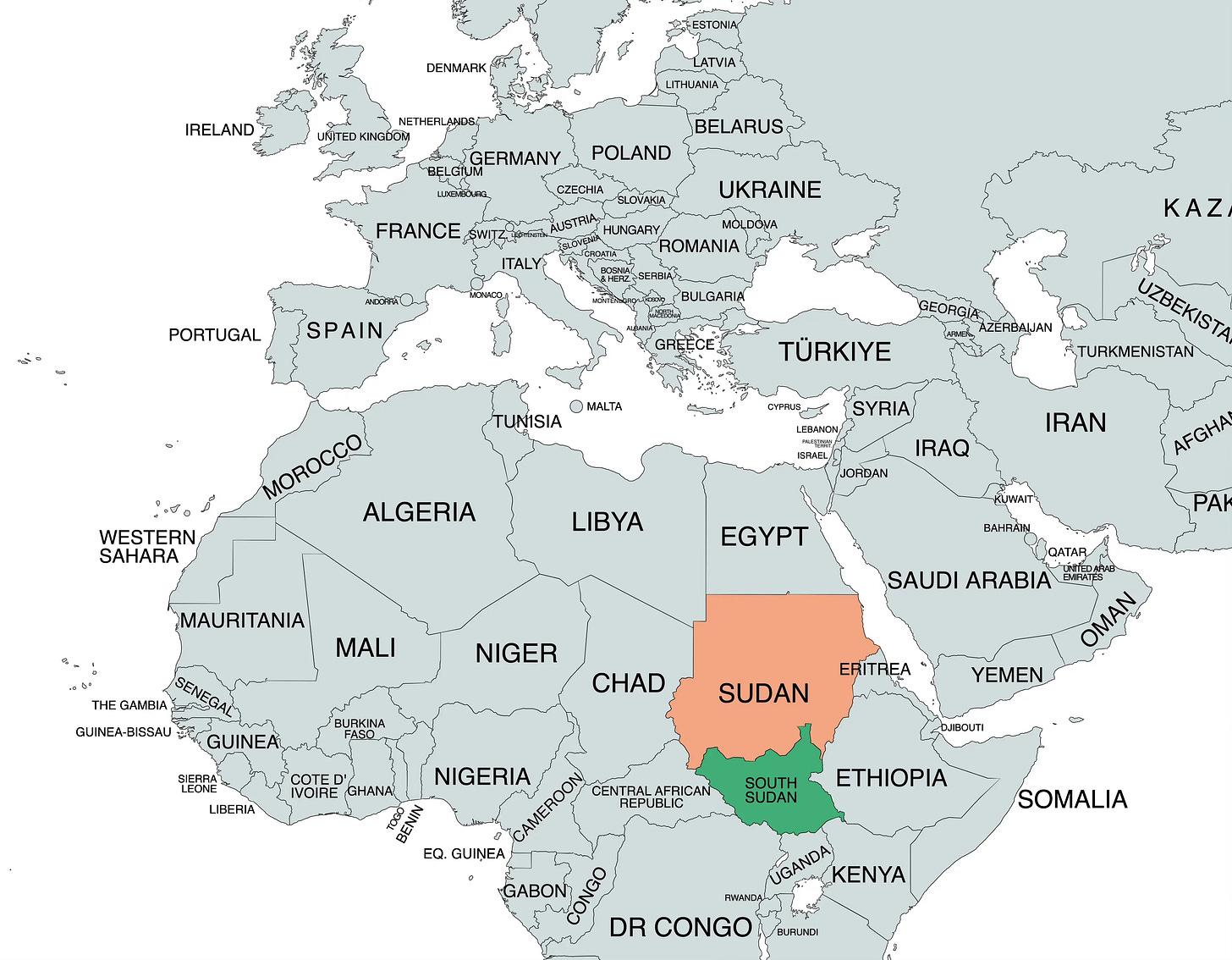Diplomats report "consistent breaches" of South Sudan's fragile peace
S. Sudan risks following the path of Sudan: 'The ceasefire is no longer holding'
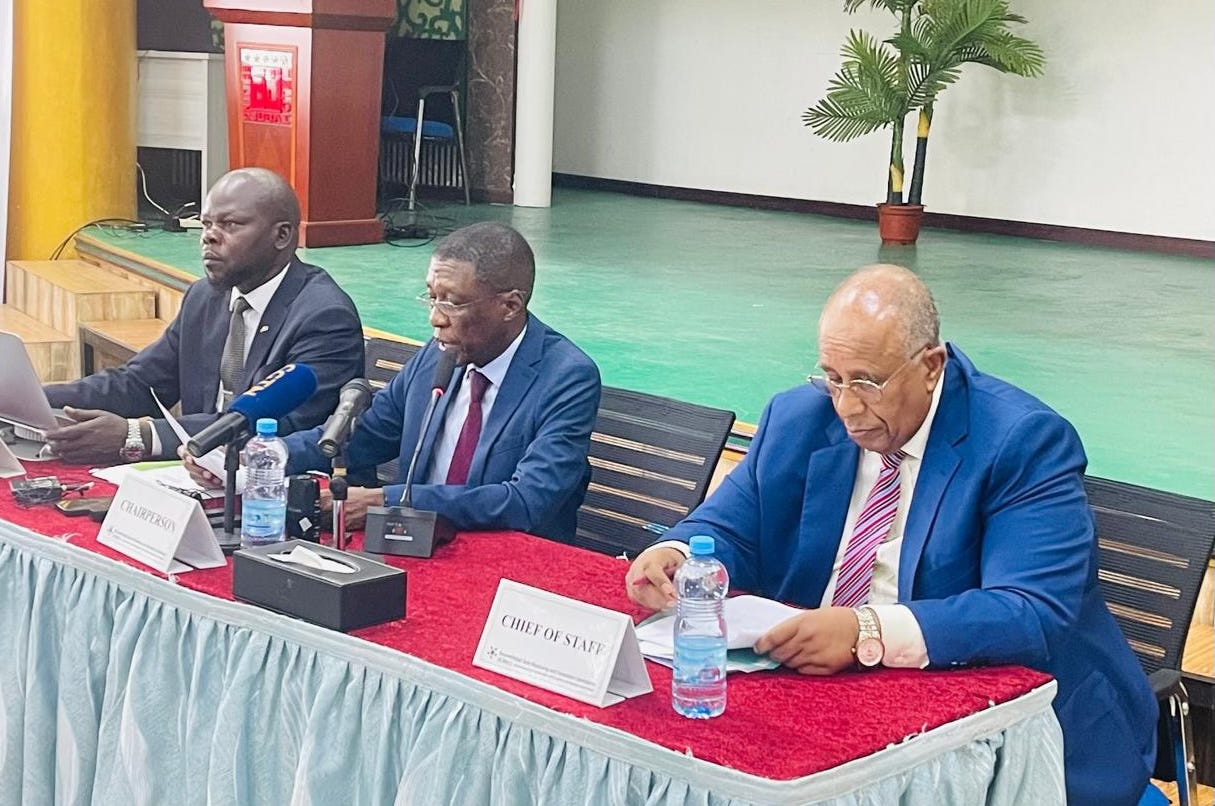
British and Norwegian diplomats have reported “repeated and consistent breaches” of South Sudan’s fragile peace agreement, which was signed in 2018, while a Kenyan peace monitor reported “parts of the agreement are continuously violated, in total disregard to its letter and spirit.”
South Sudan split from Sudan in 2011 and has remained conflict-prone and institutionally dysfunctional ever since, consistently ranking as the most corrupt country in the world. The country’s already deep poverty and political divisions have worsened as a result of the ongoing war in neighboring (north) Sudan, which cut off important trade routes and oil pipelines, while destabilizing border regions with the arrival of thousands of refugees and militants.
The separation of the two Sudans in 2011 was meant to stabilize the long-suffering region; instead, both countries plunged into their own civil wars, even as a tenuous peace prevailed between the two national governments. The latest crisis South Sudan comes after the ailing dictator, Salva Kiir, arrested First Vice President Riek Machar, leader of the largest South Sudanese armed opposition group, the SPLM-IO.
Machar’s arrest in March coincided with a bout of significant violence in the opposition leader’s home region. The arrest and effective removal of Machar from office aimed to smooth the succession of Second Vice President Benjamin Bol, Kiir’s protégé, long-time business partner, and heir apparent.
The move has significant security implications because Machar is one of the principal signatories of South Sudan’s 2018 peace agreement, known as the R-ARCSS, which ended a five-year civil war. His loyalists say the peace agreement has collapsed.
“There is no doubt that the R-ARCSS is facing its greatest challenge since its signing,” said Ambassador George Aggrey Owinow, a Kenyan diplomat and former general who chairs the international monitoring body known as RJMEC (Reconstituted Joint Monitoring and Evaluation Commission). “If the current challenges are not urgently addressed, there is a high risk of reversal of the gains already made and may lead to a collapse of the agreement altogether.”
RJMEC convened in the South Sudanese capital Juba yesterday for the first time since February. British Ambassador David Ashley, speaking on behalf of Norway and the United Kingdom, which sit on the monitoring body, stated, “In February, we noted our sadness that we were unable to point to significant or consequential progress by the parties to the 2018 peace agreement. It is with regret that now, seven months on, even the limited progress made [in implementing the agreement] has been reversed.”
“Instead, we are witnessing repeated and consistent breaches of the Peace Agreement. The legitimacy of the transitional government is tied to that Agreement. Unilateral dismissals, or even detentions, of political opponents without consulting partners to the Agreement undermines peace and risks further conflict.”
Ambassador Ashley continued, “Most important, the permanent, nationwide ceasefire, to which all the parties committed to, is no longer holding. Both pf the largest parties, SPLM-IG and SPLM-IO are engaged in regular armed clashes in at least four states and are publicly referring to each other as enemies. This has already cost thousands of lives and displaced hundreds of thousands of people.”
“This must stop now, if South Sudan is to avoid renewed war.”
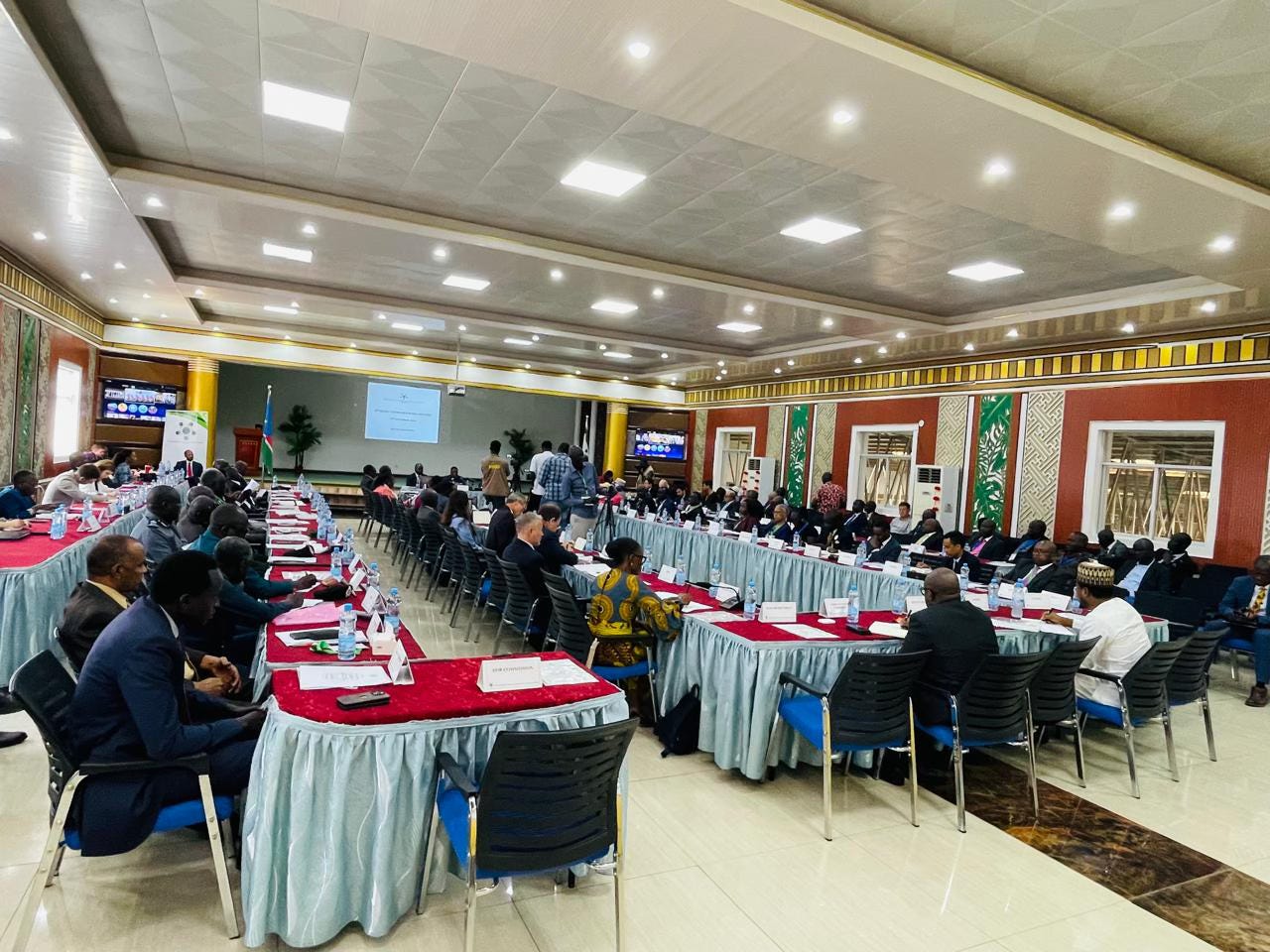
The diplomat called for renewed dialogue “at the level of the presidency.” However, Kiir’s government has recently moved in the opposite direction. Last month, prosecutors charged Machar and seven co-defendants with treason, murder, and crimes against humanity, while Machar’s allies dismissed the trial as a kangaroo court.
The ongoing slide back to war in South Sudan is part of a widening arc of instability, war, and humanitarian disaster in East Africa stretching from Eastern Chad’s refugee camps to the cities of Darfur, the plains of Kordofan, the Nuba Mountains, along the sprawling border between the two Sudans, throughout the wetlands of the Upper Nile region, and deep in the Equatoria forests, all the way to the Ugandan border.
According to Owinow, the chairman of the RJMEC monitoring group, four factors explain South Sudan’s current crisis. He said in remarks yesterday:
“In RJMEC’s analysis, the persistence of the current political and security impasse and the systematic violations of the R-ARCSS is attributable to several factors, including, among others, the following:
a. Mistrust between the Parties to the R-ARCSS, hence inability to openly and honestly dialogue on issues. This mistrust therefore erodes the political will to push implementation of the R-ARCSS forward.
b. Lack of collegiality and genuine consultations by Parties to the R-ARCSS resulting in unilateral decisions that further erode trust.
c. Internal party disputes which affect effective participation in the mechanisms and generally in the implementation process.
d. The slow traction in unifying forces that has resulted in the forces of two major parties clashing in several parts of the country, which is a serious violation of the Permanent Ceasefire and threat to the R-ARCSS.”
Meanwhile, on the eve of the RJMEC meeting, President Kiir appointed a member of his party to a ministerial post allocated to the opposition under the terms of the 2018 peace deal. General James Koang Chuol, who already held a senior position in South Sudan’s army, will serve as the Deputy Defense Minister, a post that had been vacant since 2023. During the last civil war, Koang was accused of significant war crimes.
Kiir also appointed a new commander of his presidential guard unit, known as the Tiger Division, promoting his aide-de-camp Valentino Baak Makuei and reassigning the current commander, Gen. Philip Nyon Nyon, who had held his position only since May. Frequent reshuffles of this kind are common within Kiir’s government, both in the cabinet and top security ranks. They may reflect a desire on the part of the president to prevent any of his senior aides from gaining power independently of him, as well as a paranoid streak. Kiir has repeatedly accused political opponents and members of his own government of plotting a coup against him, often reconciling with the later. He also sometimes sacks officials due to personality differences, corruption allegations, or to open up positions to reward other courtiers.
Earlier this year, Kiir sacked and arrested his spy chief, General Akol Koor Kuc, a long-time confidante and ally. The move sparked a brief gunfight in the capital.
Kiir took power in 2005 while South Sudan was partly autonomous, succeeding from John Garang de Mabior, founder of the SPLM rebel movement, who died in a helicopter crash. He won election once in 2010 with 93% of the votes. Apart from that, Kiir has never allowed an election. He is among Africa’s longest-serving rulers.
Like Yoweri Museveni (Uganda), Isaias Afwerki (Eritrea), and Paul Kagame (Rwanda), Kiir rose to power during a guerrilla war in the 1980s-1990s. Unlike these leaders, however, Kiir failed to secure a lasting internal peace, despite the use of repressive tactics; South Sudan has witnessed endemic violence and periods of full-scale war throughout his time in office.
United Nations peacekeepers, deployed in South Sudan since 2005, provided a stabilizing influence and saved lives by creating protected sites to prevent ethnic massacres during the last civil war, but they failed to quell the violence overall. A comparable mission deployed in (north) Sudan’s troubled Darfur region withdrew in 2021, two years before the outbreak of a renewed and wider civil war.
Sudan News in Brief
A long-lasting cholera outbreak in Sudan — associated with ongoing conflict, mass displacement, targeting of infrastructure, and the collapse of the healthcare system — is increasingly under control, according to state media. Zero new cases are reported in some states. The outbreak began in July 2024 and claimed more than 3,000 lives out of about 115,000 confirmed cases, according to UN figures.
On the other hand, there is a worsening cholera outbreak among Sudanese refugees in Eastern Chad, with more than 2,600 suspected cases and approximately 150 deaths reported as of Sunday, October 5. These figures indicate a potential case fatality rate of approximately 6%, well above the emergency threshold of 1%, according to the World Health Organization.
The UN World Food Programme reports that nearly 2 million people across Darfur received food and nutrition assistance in August, including in areas where famine has been confirmed or where the risk of famine is high. This number accounts for roughly half of the 4.2 million people receiving WFP support across Sudan.
A drone barrage launched by the Rapid Support Forces (RSF) struck the city of El Obeid on Sunday, October 5. No civilian casualties were reported but the El Obeid Teaching Hospital, the Social Security Hospital, and a market reportedly were targeted, as well as a number of military sites.
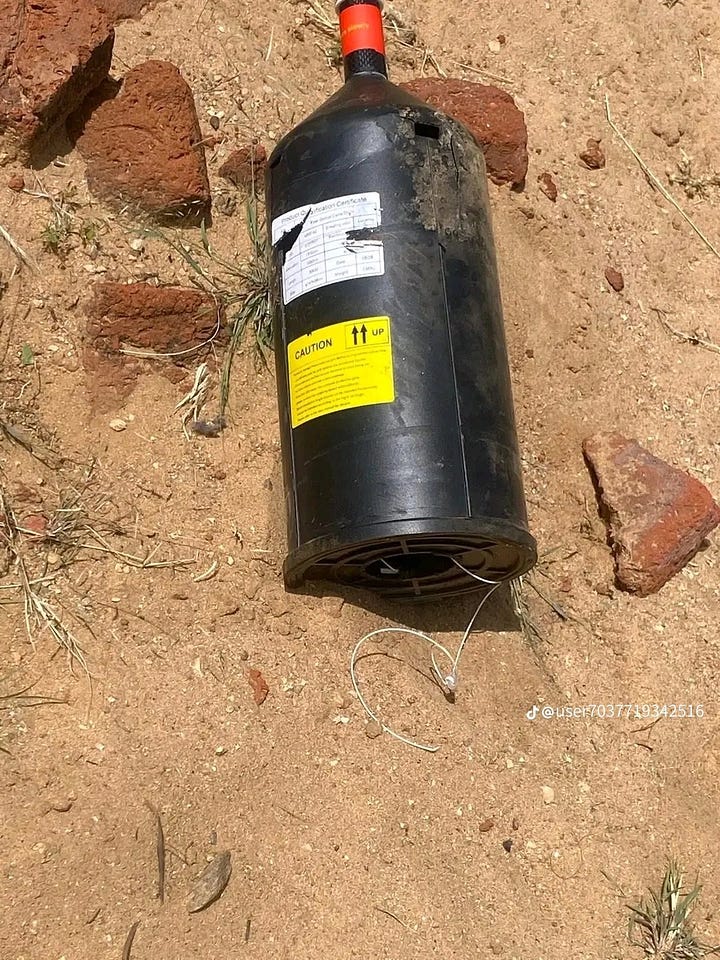
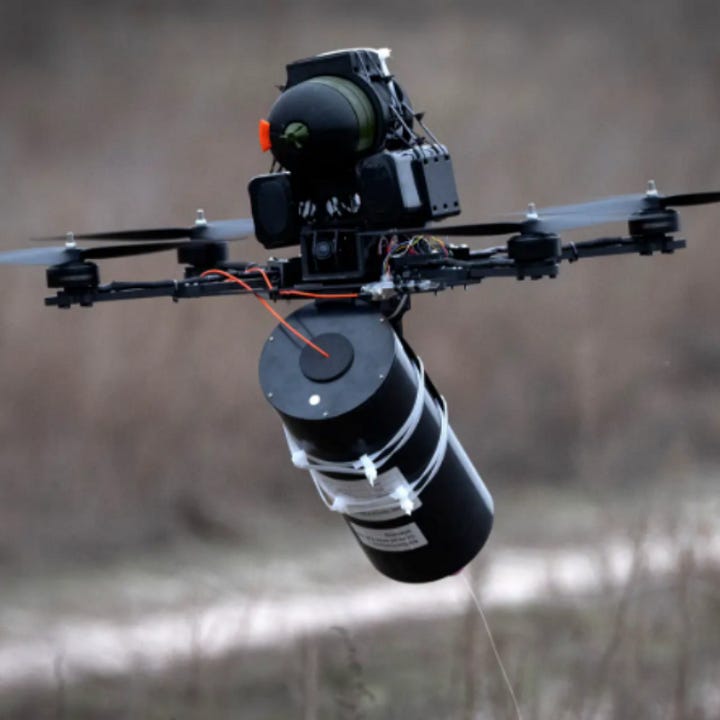
Pro-SAF social media influencers report the discovery of empty containers of fiber optic reels in El Fasher, which is under siege by the RSF. This type of equipment, widely used in the Ukraine war, helps drones to bypass jamming devices by allowing controllers to communicate to drones via a thin cable.
Humanitarian sources report the shelling of the Specialized Women’s and Obstetrics Hospital in El Fasher yesterday, amid heavy fighting in the city, causing the death of a female doctor and nursing staff, among others.


